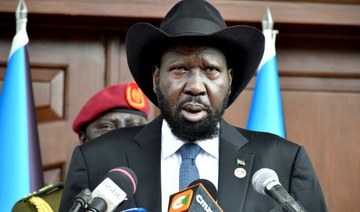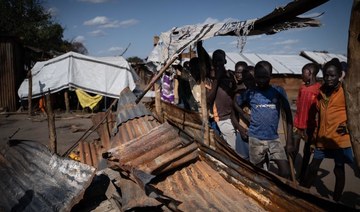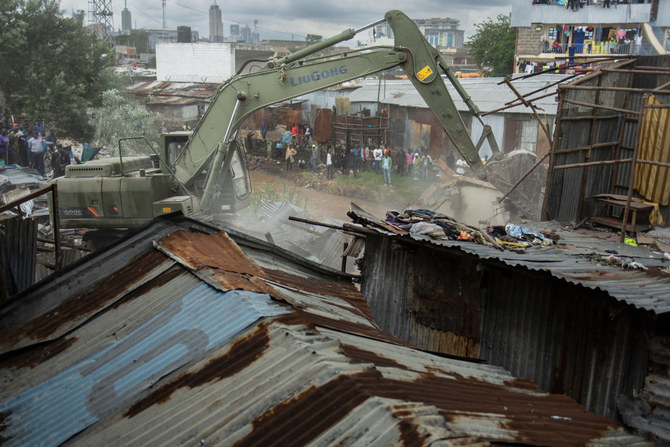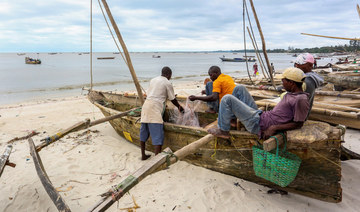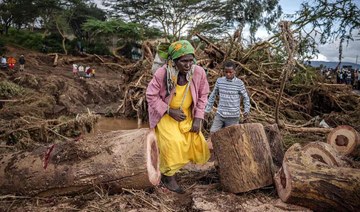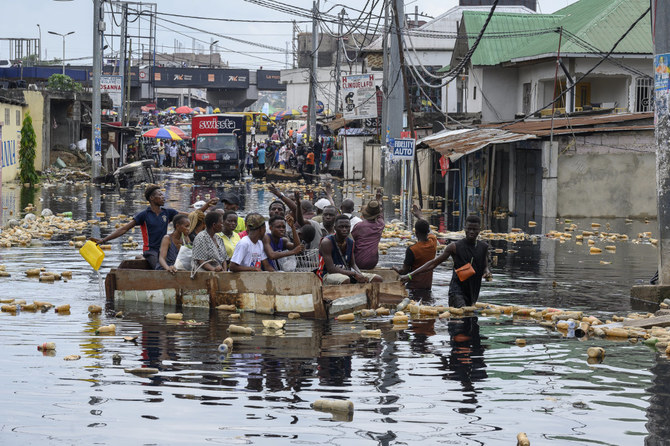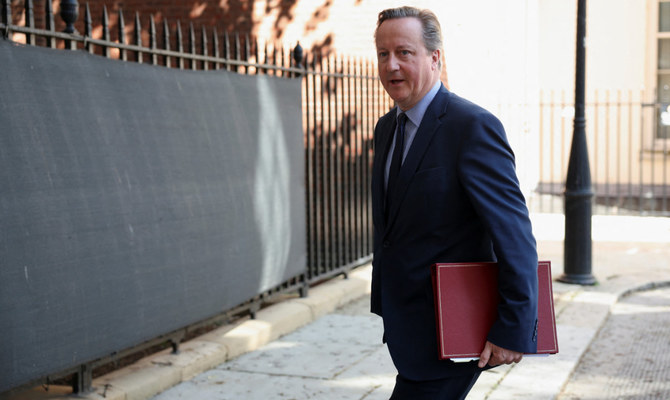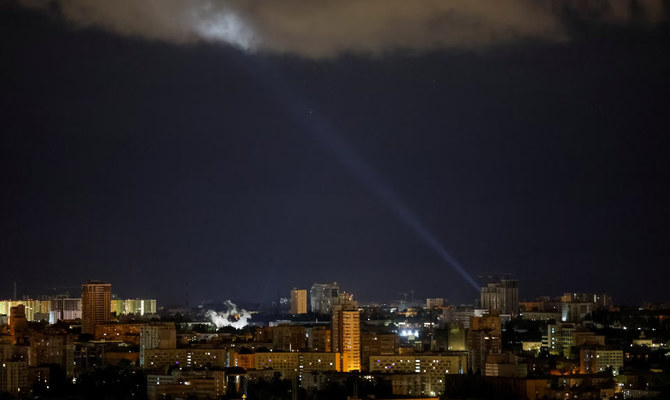JUBA: Security forces patrolled South Sudan’s capital Juba on Monday and many shops were shut as the authorities warned of a tough crackdown against anyone joining a planned anti-government protest.
The world’s newest nation has suffered from chronic instability since independence in 2011, with deepening discontent prompting civil society groups to urge its leadership to step down, saying they have “had enough.”
The demonstration was set to take place the same day as President Salva Kiir inaugurated a newly created national parliament, a key condition of a 2018 peace deal that ended the country’s brutal civil war that killed nearly 400,000 people.
The government has taken a hard line against the People’s Coalition for Civil Action (PCCA) and its calls for a peaceful public uprising, arresting at least eight activists and detaining three journalists this month in connection with the demonstrations, according to rights groups.
Although the protest organizers had urged the public to come out in force, no demonstrations were reported in Juba, with residents telling AFP they were afraid even to leave home.
“We are hearing that there is no work today, and besides we are fearing (what the day will bring),” said food hawker Emelda Susu.
“I will go to the market when I see things are normal, but for now one’s life (comes) first, my friend. Yes I am fearing so I have to be careful,” Jimmy Bandu, a small-scale trader, told AFP.
The government is in full control and ... so everybody should resume his or (her) normal duties and ... not fear anything.
Michael Makuei, Information minister
National security officers with militarized mounted vehicles patrolled usually busy neighborhoods in Juba, which also saw a ramped-up police presence and low levels of traffic. The authorities have branded the protest “illegal” and warned of strict measures against anyone who defies the ban.
“The government is in full control and ... so everybody should resume his or (her) normal duties and ... not fear anything,” said Information Minister Michael Makuei.
He dismissed reports of an Internet shutdown after users reported difficulty accessing two of the country’s main networks, Zain and MTN, blaming any problems on technical troubles.
With the mood in the usually bustling capital decidedly subdued, Kiir told members of the new parliament to put citizens’ “needs above partisan consideration ... (and) place the people of South Sudan above any narrow party interest.”
“We should always remember that our final mandate in this (peace) process is to hold free, fair and credible democratic elections at the end of the transitional period,” he added, referring to long-delayed polls now expected in 2023.
In a sign of the lingering challenges facing the country, Kiir also announced that the government was pulling out of negotiations with the South Sudan Opposition Alliance (SSOMA), a coalition of rebel groups.
The talks, which were brokered in Rome by a Catholic association with ties to the Vatican, have failed to curb violence in the south of the country, despite a ceasefire signed in January 2020.
“While the quest for an inclusive peace in our country remains our sole objective, recent killings of innocent civilians ... have tested our patience,” Kiir said, accusing rebels from the National Salvation Front — a member of SSOMA — of indiscriminate attacks.
The peace process has suffered from years of drift and bickering following the 2018 ceasefire and power-sharing deal between Kiir and his former foe Vice President Riek Machar.
The PCCA — a broad-based coalition of activists, academics, lawyers and former government officials — has described the current regime as “a bankrupt political system that has become so dangerous and has subjected our people to immense suffering.”




